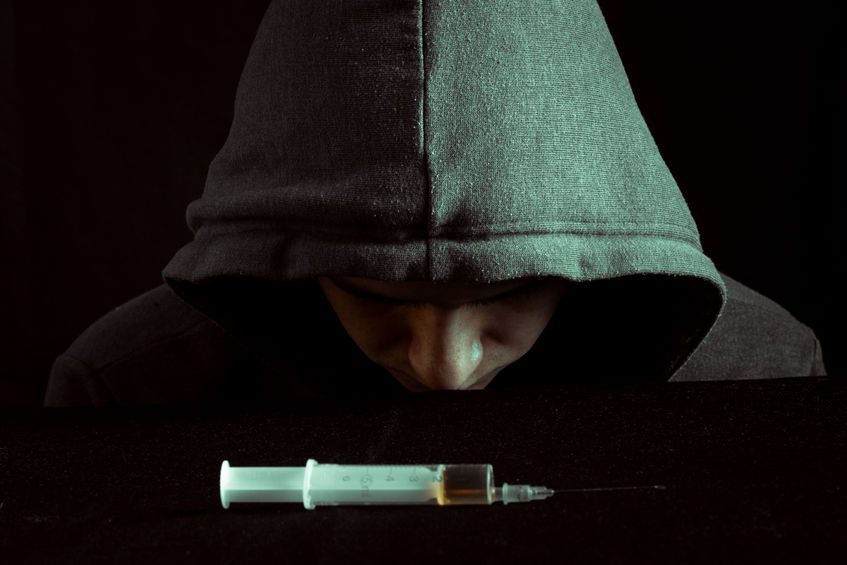 Heroin is a very potent and extremely addictive opiate. Although illegal in the United States, its low cost and high availability have made it one of the most widely abused substances to date. The recent rise in prescription drug abuse has also triggered an increase in heroin usage, as people who have become addicted to their prescription seek alternative means of maintaining their habit once they run out of pills or are cut off by doctors. Heroin is typically found in powdered or “black tar” form and can be smoked, snorted, or injected intravenously. First-time users may experiment with the drug thinking they won’t get hooked, but it only takes a few uses for a person to become physically dependent.
Heroin is a very potent and extremely addictive opiate. Although illegal in the United States, its low cost and high availability have made it one of the most widely abused substances to date. The recent rise in prescription drug abuse has also triggered an increase in heroin usage, as people who have become addicted to their prescription seek alternative means of maintaining their habit once they run out of pills or are cut off by doctors. Heroin is typically found in powdered or “black tar” form and can be smoked, snorted, or injected intravenously. First-time users may experiment with the drug thinking they won’t get hooked, but it only takes a few uses for a person to become physically dependent.
When Will Heroin Withdrawal Symptoms Begin?
Heroin withdrawal symptoms will start to present anywhere from four to eight hours after the last use and generally peak around 48 hours. The onset of withdrawal may depend on how much or how frequently the person used heroin and what the heroin was “cut” with. Dealers will typically mix any number of substances with heroin (i.e. sugar, vitamin C, and even pharmaceuticals) so that there is more of it to sell.
What Does Withdrawal Feel Like?
Heroin withdrawal symptoms may include but are not limited to: nausea, vomiting, insomnia, profuse sweating, rapid heart rate, diarrhea, severe muscle aches and joint pain, stomach cramps, restless legs, chills, depression, anxiety, dilated pupils, and yawning. These symptoms can last from a few days to a week. Some users will experience post acute withdrawal, which can last for several months.
For someone who is experiencing heroin withdrawal for the first time, they may simply think they are getting the flu. However, these symptoms are often accompanied by an overpowering desire to get high as more of the drug is the only thing that will relieve the person’s suffering. Heroin withdrawal symptoms are typically so unpleasant that the sufferer will do anything to avoid them or make them go away, thereby remaining stuck in the cycle of addiction.
What Next?
Unless there are underlying medical conditions, heroin withdrawal is not life-threatening. Many users will try to detox themselves at home, but this can make avoiding temptation very difficult. Pursuing a medically supervised detox is highly recommended for several reasons. A detox facility can offer a supportive environment and complete medical supervision should any complications arise. Doctors may prescribe medication to relieve withdrawal symptoms and help the person transition to a sober lifestyle.
Successfully overcoming heroin withdrawal symptoms is just one step on the road to recovery, but it is a very important one.



